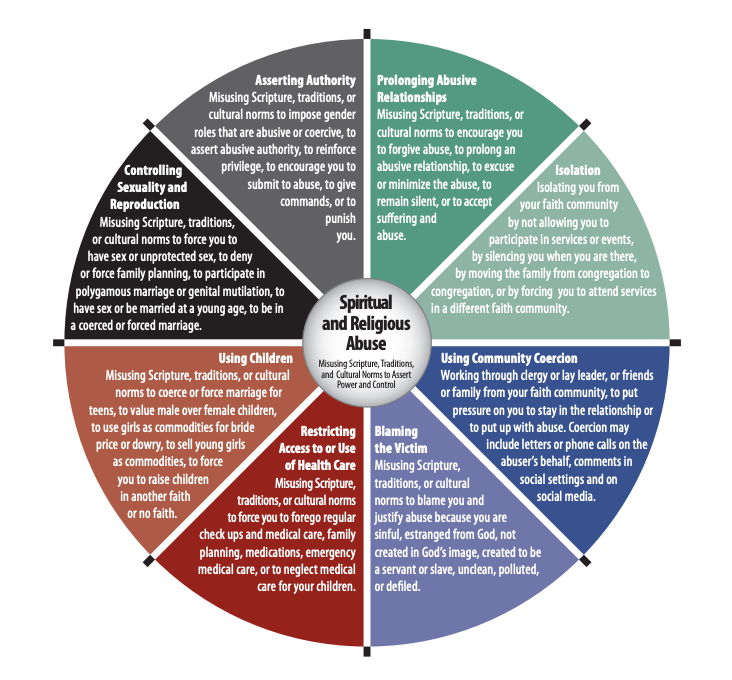"An informed, compassionate advocate and a knowledgeable religious leader can make all the difference for a victim/survivor who is experiencing domestic violence. An adequate advocate’s response that includes competent and sensitive religious and cultural concerns, combined with the resources of the wider community, can save lives and bring healing where there has been woundedness.” – Rev. Thelma Burgonia-Watson, from “Walking Together: Working with Women from Diverse Religious and Spiritual Traditions”
Many survivors report finding hope and healing in their faith traditions and spiritual practices. Religion can be a critical resource for survivors in making sense of the abuse and informing their decisions. It is also known to be a roadblock to help-seeking, hope and safety. That is why faith leaders and faith communities play an important role in supporting both survivors of abuse and those who cause harm. Nonspiritual domestic violence advocates must support survivors who wish to access faith-based resources. These can be an integral part of their journey towards safety and healing. The resources below offer context around the intersections between domestic violence and religion. They provide guidance for those who wish to work at that intersection.
The history and evolution of the landscape of faith and religion in the United States provides important context to this issue. This includes a history of discrimination, oppression, and violence against Black Churches, Muslims, Jews, and other faith communities, particularly communities of color. The Pew Research Center provides a library of resources on religion in the United States: https://www.pewresearch.org/topic/religion/. The article, Violent History: Attacks on Black Churches, published by The New York Times outlines a long list of attacks targeting predominantly black churches in the United States.










